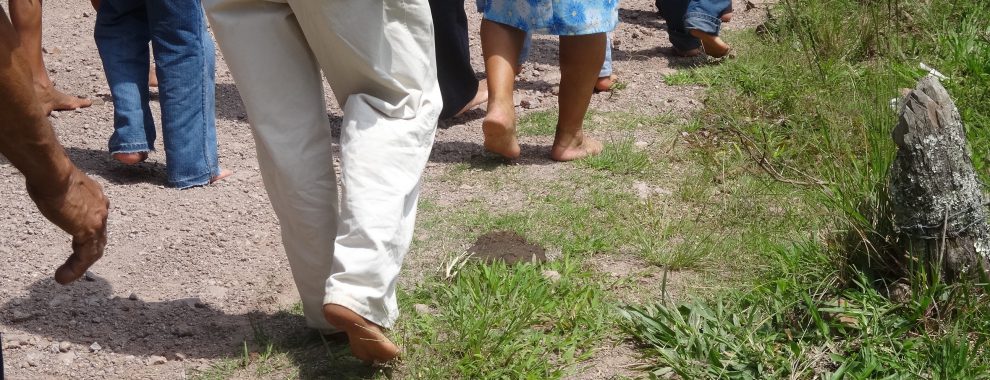…unless a grain of wheat falls into the earth and dies,
it remains just a single grain;
but if it dies, it bears much fruit.
Those who love their life lose it,
and those who hate their life in this world
will keep it for eternal life.
John 12: 24-25
NRSV translation

Monseñor Romero and Padre Luis Espinal
When I die, I’d like John 12: 20-26 read at my funeral.
Years ago, I came across Archbishop Blessed Oscar Romero’s commentary on this passage, in Fr. James Brockman’s collection of quotations, The Violence of Love:
“Those who, in the biblical phrase,
would save their lives —
that is, those who want to get along,
who don’t want commitments,
who want to stay outside
what demands the involvement of all of us —
they will lose their lives.
What a terrible thing to have lived quite comfortably,
with no suffering, not getting involved in problems,
quite tranquil, quite settled,
with good connections
— politically, economically, socially —
lacking nothing, having everything.
To what good?
They will lose their lives.
But those who for love of Me uproot themselves
and accompany the poor in their suffering
and become incarnated and feel as their own
the pain and the abuse —
they will secure their lives,
because my Father will reward them.”
Brothers and sisters, God’s word calls us to this
today.
Let me tell you with all the conviction I can muster:
it is worthwhile to be a Christian.
To each of us Christ is saying:
“If you want your life and mission
to be fruitful like mine, do as I do.
Be converted into a seed that lets itself be buried.
Let yourself be killed. Do not be afraid.
Those who shun suffering will remain alone.
No one is more alone than the selfish.
But if you give your life out of love for others,
as I give mine for all,
you will reap a great harvest.
You will have the deepest satisfaction.”
Do not fear death threats; the Lord goes with you.
I also want this quote read at my funeral, since it has been central to my understanding of God’s call for me – even before I came to Honduras.
I think it was important for Monseñor Romero who used a shortened version of this in his last homily, on March 24, 1980, moments before he was martyred at the altar as he finished his homily.
Today, I came across another quotation that sheds light on today’s reading, from another Latin American martyr. Fr. Luis Espinal, S.J., was abducted on March 21, 1980, and his tortured and bullet-ridden body was found on the afternoon of March 22. The quote, taken from Margaret Hebblethwaite’s Base Communities is found in Jim Manney, An Ignatian Book of Days:
Losing one’s life means working for others, even though they don’t pay us back. It means doing a favor without it being returned. Losing one’s life means jumping in even when failure is the likely outcome— and doing it without being overly prudent. It means burning bridges for the sake of our neighbor. Losing one’s life should not be accompanied by pompous or dramatic gestures. Life is to be given simply, without fanfare— like a waterfall, like a mother nursing her child, like the humble sweat of the sower of seed.
These two quotes express the challenge of Jesus’ call to be like the grain of wheat. Meditating on this Gospel and the two commentaries of martyrs will be a good discipline for me in these last two weeks of Lent.
The quotation from Romero, from The Violence of Love, is reprinted from www.bruderhof.com. Copyright 2003 by The Bruderhof Foundation, Inc. Used with permission.



 What struck me most was that ordinary life was going on in the streets of Jerusalem, probably as it did on the day Christ carried his cross to his crucifixion: parents walking with their children, people selling from their small shops, even soldiers leaving their barracks.
What struck me most was that ordinary life was going on in the streets of Jerusalem, probably as it did on the day Christ carried his cross to his crucifixion: parents walking with their children, people selling from their small shops, even soldiers leaving their barracks.




